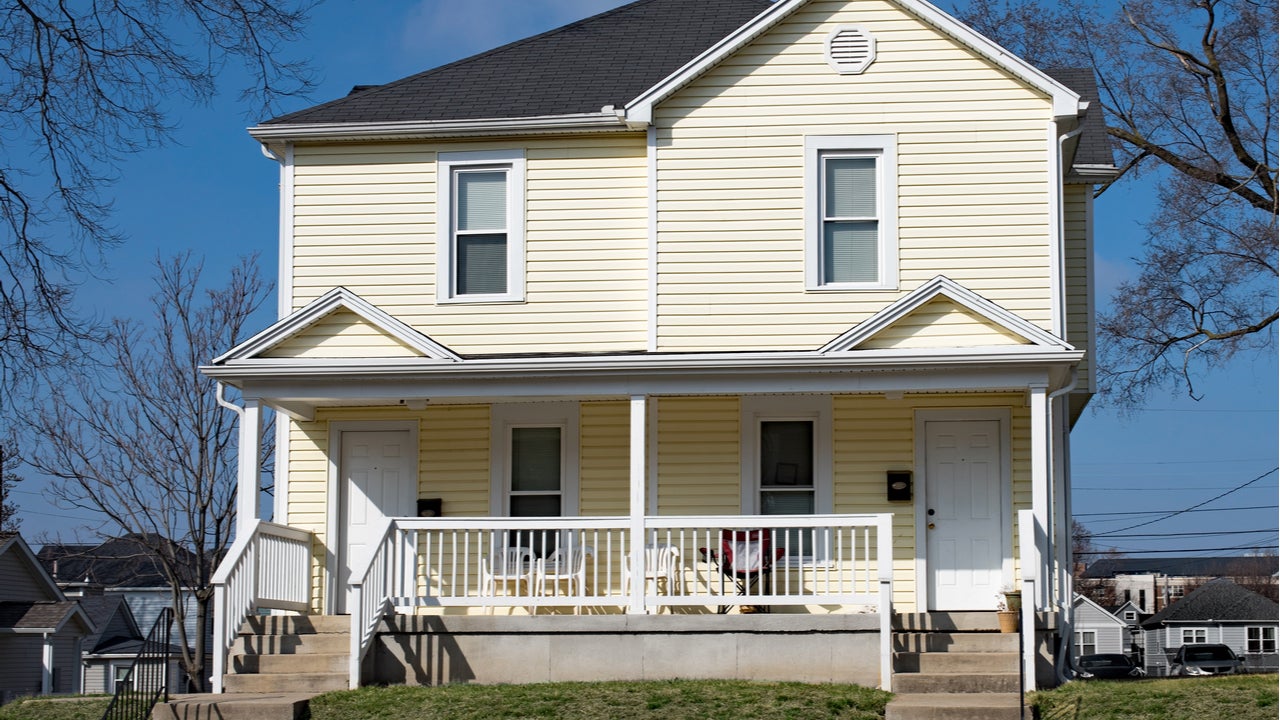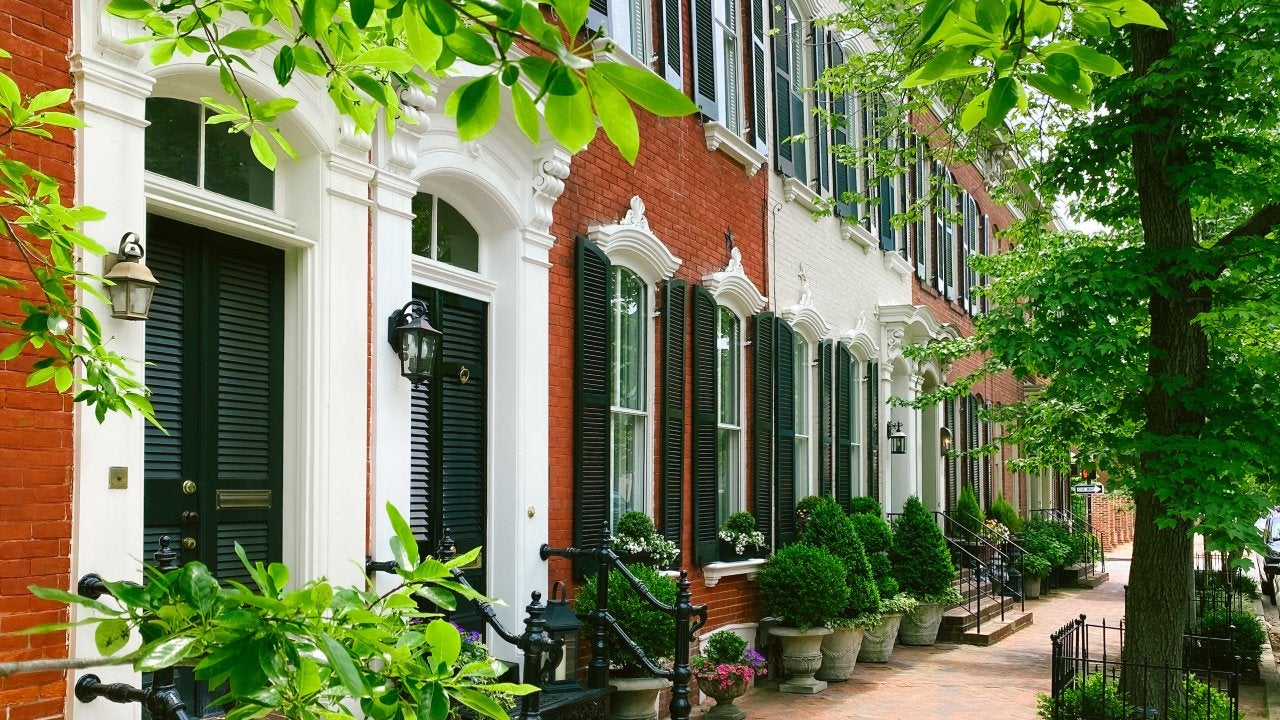Condo, townhouse, house, apartment: Which is right for you?

Finding a new place to set down roots isn’t solely about the price tag. Your real estate search is likely to include a range of options: Apartment? Condo? Townhouse? Or the traditional single-family house? As you weigh different types of properties against each other, it’s important to think about not only what you can afford, but also your preferences and expectations as a homeowner or renter.
“When it comes to deciding which style of home to focus their search on, buyers should consider their budget and lifestyle, as well as their desired amount of involvement in home maintenance,” says John Ameralis, a real estate agent and leader of the Ameralis Group in New York City.
Maybe you’re a first-time homebuyer, or an empty nester looking to downsize. No matter where you are in life, consider this your primer on what type of housing will best fit your needs.
Apartment vs. condo vs. townhouse vs. house
| Living Space | Cost | Ownership | Best for |
|---|---|---|---|
| Apartment | Security deposit, monthly rent | No ownership | Those who want flexibility to relocate or are saving for a down payment |
| Condo | Down payment, closing costs, monthly mortgage payment, HOA fees | Unit | First-time homebuyers, downsizers |
| Townhouse | Down payment, closing costs, monthly mortgage payment, HOA fees | Unit and property it sits on | Those who want more space than a condo, but not all the responsibilities of a house |
| House | Down payment, closing costs, monthly mortgage payment, maintenance | House and property it sits on | Larger households, those who value more space and privacy |
Apartments
Pros
- Flexibility to move
- Not responsible for maintenance
Cons
- No equity or ownership benefits
- Must abide by landlord’s rules
An apartment is any residence inside of a residential building where the individual units are rented, not sold. In bigger cities, these can be condos that are being individually rented. Apartment buildings often have shared amenities for tenants, like a gym or a pool.
If you don’t have enough cash to put toward a down payment and closing costs just yet, an apartment rental can be a very good choice. Use Bankrate’s rent vs. buy calculator to get a good idea of which is a better financial move for you.
There are other questions to consider, too, though. How long do you plan to live there? Are you likely to have a job or lifestyle change that could require you to move? If you plan to move within five years, that’s another reason why it could be better to rent than buy for now.
Renting an apartment provides a place to live minus most of the responsibilities that come with homeownership. However, as with condos, you’re limited in the changes you can make (think paint colors or fixtures), and the landlord can dictate things like whether to allow pets and more. Also, as a renter you won’t build any equity or get the tax perks that come with homeownership.
Condos
Pros
- Limited maintenance
- Extra security
Cons
- Monthly fees
- Communal spaces
A condominium (or condo for short) is a salable unit within a larger community, often a high-rise building. Condos can be a good option for anyone who wants to keep home maintenance to a minimum, including first-time homebuyers, singles, older homeowners or people who travel frequently. Condos are similar to apartments, in that both are likely to share multiple walls with neighbors. There is one major point of distinction, however: You own a condo.
Of all the home types on the market for sale, condos require the least amount of maintenance. “You only need to maintain the ‘walls in,’” Ameralis says. So, if the roof is leaking or the carpet in the lobby needs to be replaced, that’s not your responsibility — the condo association handles those duties. In addition, some condo buildings have doormen and offer an extra level of security, particularly in large cities.
Of course, you and all your neighbors pay HOA or condo fees to cover these costs. Condo association rules can be highly restrictive, as well. You may not be able to customize your unit the way you want, for example, and you may be prohibited from renting it out to others.
Those who value privacy might find a condo’s communal areas less than ideal, too. “It is important to keep in mind that in condos, even the most exclusive ones, you are still sharing elevators and other amenities,” says Judy Zeder, a Realtor with the Jills Zeder Group at Coldwell Banker in Miami.
Townhouses
Pros
- Lower price
- More space than condos or apartments
Cons
- Monthly fees
- Shared walls
Townhouses can be much cheaper to buy than a single-family home. Some even have small yards or patios. However, most modern townhouses have fairly small footprints and shared exterior walls with neighboring homes.
Townhouses also usually come with HOA rules and fees. When it comes to the ability to make your own choices, you might have a bit more autonomy than condo owners, but your decisions still typically have to be HOA-approved.
“The older a townhouse development, the higher the maintenance fees tend to be, because the communal parts of the property — whether it’s the grounds, a pool, roofs or siding — need to be repaired over time,” says Andrea Webb, an agent with Keller Williams NJ Metro Group in Montclair, New Jersey.
For homebuyers debating between a house or a condo, a townhouse might deliver the best of both worlds: You get more space, often in multiple levels (like a single-family house), with less exterior maintenance (like a condo).
Houses
Pros
- More space and privacy
- Freedom over aesthetic choices
Cons
- Higher price
- All maintenance is your responsibility
When most people talk about buying a house, they mean purchasing a single-family home, which is a standalone structure on a foundation. It doesn’t share walls or common spaces as condos, apartments and townhomes do, and it may also come with a lot of land to enjoy — and take care of.
Two of the biggest points in favor of buying a house are privacy and the freedom to decorate and maintain it however you like. (Within the frame of local ordinances and/or HOA guidelines, of course.) “Owning your own house gives you more freedom to live how you want to versus condos, which have bylaws that govern what you can and cannot do,” Ameralis says.
Single-family homes are usually the most spacious housing option, and you can expect a higher price tag to reflect that. According to data from Redfin, the median price of a single-family home in January 2025 was $434,303, compared with $365,177 for a townhouse and $362,451 for a condo or co-op.
In addition to paying more upfront, you’ll likely pay more down the road, too. Owning a house means you’ll be responsible for all of the property’s maintenance and repairs, including landscaping and lawn care, which can be considerably more cumbersome than you’d have with another type of home.
Next steps
To help you choose among a home, townhouse, condo or apartment, consider your savings account, how much space you need, how long you plan to live there and how much money you can comfortably put toward repairs, maintenance and remodeling costs.
Visit open houses and search online listings to see what’s on the market in your price range. And consider working with a local real estate agent to help you narrow your choices — agents know their markets very well and can help you find the best possible options in your area that are within your budget.
Why we ask for feedback Your feedback helps us improve our content and services. It takes less than a minute to complete.
Your responses are anonymous and will only be used for improving our website.
You may also like

Buying a home with a friend? Here’s how to insure it


How to choose the right, cheap home insurance for your budget

How to buy a townhouse: 5 tips to follow



